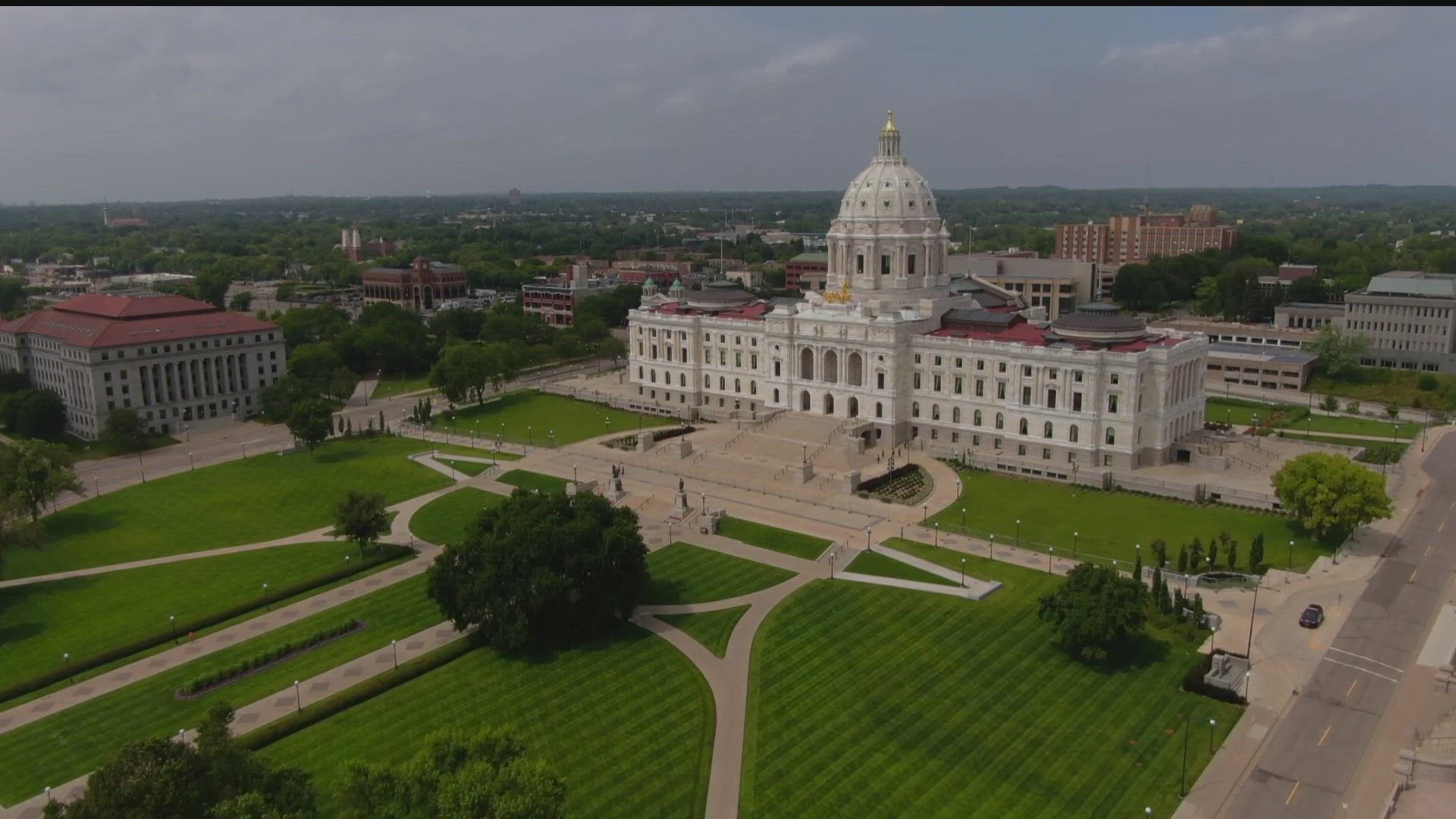ST PAUL, Minn. — The 2023 Minnesota Legislative Session made headlines for a flurry of activity at the State Capitol under the DFL trifecta in the Minnesota House, Senate and Governor's office.
The laws passed and signed by Governor Tim Walz take effect at different times, including several that begin on July 1, 2023. Many of the new laws involve funding increases for areas like agriculture, economic development, education, elections, health care, transportation, public safety and renewable energy.
Below is a look at a few of the key provisions starting July 1. A detailed summary of the new laws can be found online, published by the nonpartisan House Public Information Services.
Free school meals
All Minnesota K-12 students will now receive free breakfast and lunch at school each day, with the program paid through a combination of state and federal funds.
Free college tuition & automatic admission
The Higher Education Policy and Finance Law includes appropriations funding to launch the North Star Promise financial aid program for students attending classes starting in fall 2024. Students in families making less than $80,000 a year can receive state dollars to cover any tuition and fees remaining after scholarships and grants to attend public postsecondary institutions.
The law also creates a program for free undergraduate education for Native American students at public postsecondary schools.
Additionally, the state is starting a pilot program to give qualifying high school seniors automatic conditional admission to public colleges and universities.
Noncompete contract clauses banned
Minnesota employers may no longer put noncomplete clauses into employment contracts, one of several provisions starting July 1 in the Omnibus Jobs Bill. Such clauses typically restrict an employee from working for a competitor or in a certain geographical area for a set period of time after termination.
Safety protections for health care workers
The Nurse and Patient Safety Act requires that hospitals develop an incident response plan to deal with increasing acts of violence against health care workers. The same bill also aims to address the nursing shortage in Minnesota, with funding for a loan forgiveness program.
Mental health for first responders
A new law requires up to 32 weeks of mental health treatment for police officers and firefighters with psychological conditions such as PTSD, as well as eligibility for state disability benefits.
Limits on no-knock warrants
The Public Safety law will put limits on the ability of judges to issue no-knock search warrants. Such warrants will only be allowed if the search cannot be conducted when a home is unoccupied, and only if the judge determines “the occupant or occupants of the dwelling will present an immediate threat of death or injury to the officers executing the warrant if the officers announce their presence or purpose prior to entering the dwelling.”
Rural broadband
The 2023 ag bill includes funding for the Office of Broadband Development, which will help pay for projects to make broadband more widely available throughout rural Minnesota.
Consumer protections
The Commerce Finance and Policy Law will establish new protections on prescription drug costs; the law also sets up the Strengthen Minnesota Homes Act to provide grants for shoring up homes against natural disasters; and a new student loan advocate is created to assist borrowers with reviewing complaints.
Adult-use cannabis*
Minnesotans will have to wait another month to legally possess cannabis without penalty, but certain provisions in the adult-use cannabis law technically begin on July 1 to prepare. It includes funding for the Office of Cannabis Management, as well as establishing a 10% tax on retail cannabis sales, with 20% of tax proceeds going to local governments. The portion of the law that officially legalizes cannabis possession and expunges certain cannabis-related convictions begins on Aug. 1.
Watch more Minnesota politics:
Watch the latest political coverage from the Land of 10,000 Lakes in our YouTube playlist:

